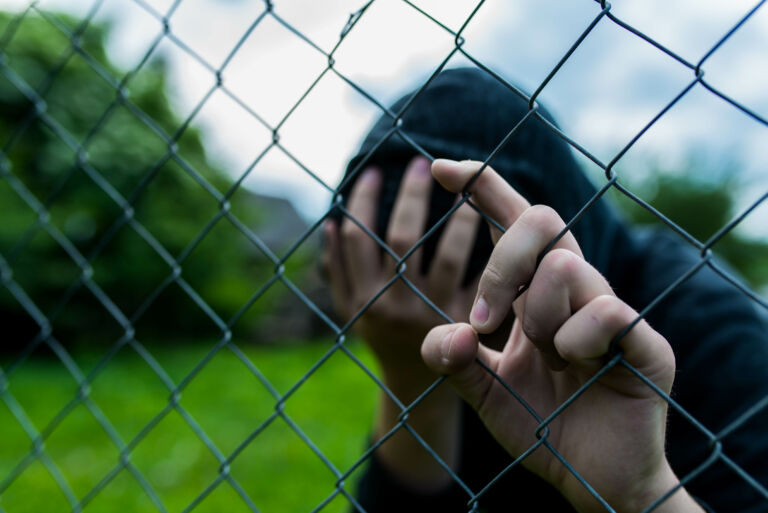Juvenile Defense Attorney in Minnesota

Charting a Better Path for Young Minnesotans
When a young person is accused of a crime, it affects the entire family—and the consequences can stretch far beyond the courtroom. Minnesota’s juvenile justice system is different from adult court, but that doesn’t mean the stakes are lower.
At Rob Doar Law, we help juveniles and their families navigate this system with clarity, compassion, and legal strategy. Whether the charge involves a school fight, theft, weapons, or something more serious, we focus on rehabilitation over punishment—and preserving the child’s future wherever possible.
Understanding Juvenile Charges in Minnesota
Children as young as 10 may face delinquency charges, and teens age 14 and up can be tried as adults in certain serious cases.:
Delinquency Petition:
Filed when a minor allegedly violates a criminal statute. The case proceeds in juvenile court, which has different procedures and goals than adult court.
Juvenile Probation:
Often ordered for lower-level offenses, allowing youth to remain in the community with supervision, curfews, or treatment.
Extended Jurisdiction Juvenile (EJJ):
Minn. Stat. § 260B.130 – Creates a hybrid system where the child is placed under juvenile court but receives an adult sentence that is stayed unless they violate terms.
Certification to Adult Court:
Minn. Stat. § 260B.125 – In severe cases, the prosecutor may ask to try the juvenile as an adult. This requires a formal hearing and heavy evidentiary burden.
Common juvenile offenses include:
- Theft and Shoplifting
- Assault and Fighting
- Underage Drinking or Drug Possession
- School Threats or Harassment
- Unlawful Possession of Firearms
- Damage to Property or Trespassing
These charges don’t define you—and the facts often reveal more than the accusation. Here’s how a strong defense is built:
- Challenging the Evidence: Was the arrest lawful? Were statements taken in violation of the child’s rights? Were searches conducted with proper consent?
- Exploring Diversion Programs: Many first-time, non-violent offenses qualify for pre-charge or post-charge diversion, keeping the matter off a permanent record.
- Advocating for Rehabilitation, Not Incarceration: Probation, community service, counseling, or treatment often make more sense than detention—and can prevent further legal trouble.
- Protecting Future Opportunities: A juvenile record can interfere with college, scholarships, jobs, and housing. Strategic advocacy can reduce or eliminate long-term consequences.
We help young people find their footing—not get trapped by a single mistake.
Navigating the Legal Process
Understanding the path ahead can provide peace of mind. Here’s what you can expect:
-
-
Initial Consultation: Discuss your case details and concerns.
-
Case Evaluation: Analyze evidence and identify defense strategies.
-
Pre-Trial Proceedings: Attend hearings and negotiate with prosecutors.
-
Trial: Present your defense before a judge or jury, if necessary.
-
Post-Trial: Address sentencing or explore appeal options, depending on the outcome.
-
Throughout this process, Rob Doar Law serves as your anchor, providing steadfast support and guidance.
Contact Rob Doar Law Today
Frequently Asked Questions
Yes. In Minnesota, children age 10 and older can be arrested and charged with a delinquent act through the juvenile justice system. While the process is different from adult criminal court, a child may still face formal charges, detention, and court hearings. The focus is on rehabilitation, but serious offenses at a young age still carry legal consequences and require experienced legal representation.
Juvenile court focuses on rehabilitation, privacy, and development rather than punishment. Most proceedings are closed to the public, and records may be sealed. However, the legal process and potential consequences still require serious defense.
Yes. Even sealed records may be accessed for background checks, military recruitment, or scholarship applications. A strong defense and careful resolution can minimize or eliminate these long-term effects.
Extended Jurisdiction Juvenile (EJJ) is a hybrid system where the juvenile is given an adult sentence that is stayed while they complete juvenile probation. If the terms are violated, the adult sentence can be imposed.
If the child is 14 or older and charged with a serious felony, the prosecution may request certification to adult court. A hearing will be held to determine whether public safety requires the transfer. An attorney can fight to keep the case in juvenile court.
Parents have the right to attend hearings, access records, and participate in probation plans. However, the child is the party to the case and has their own right to legal counsel. Having an attorney ensures the child’s constitutional rights are protected.
Yes. Many juvenile records can be sealed or expunged depending on the outcome and time since the offense. An attorney can help file a petition and represent the child in court to argue for full record sealing.
Probation, diversion programs, community service, therapy, and restorative justice initiatives are all commonly used. The goal is to address behavior while protecting the child’s future. An attorney can advocate for these alternatives during court proceedings.